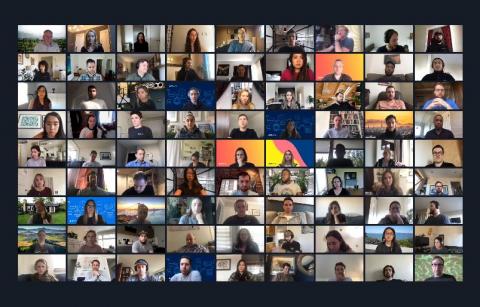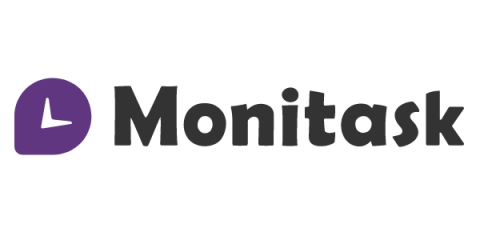Teams | Collaboration | Customer Service | Project Management
Teamwork
How to lead remotely when you've never done it before
Onboard from anywhere with this inspiring new hire welcome letter
How to align remote teams with your company vision
TL;DR: Vision gives companies a goal to work towards. It gives teams — especially remote teams — specific objectives that offer step-by-step guidance for accomplishing important goals. Even when remote teams are separated by several time zones, a clear vision statement helps individual team members understand how every decision they make can have a positive impact for the entire company. Here’s how to get started. A vision statement is a lot like your company’s North Star.
How our team stays connected while working remotely
While the heart of a company’s culture is not dependent on in-person facetime, it often manifests in ways that bring people together in the same space. So what happens when connecting in person is no longer an option? “We still need human connection.
Keep it together: Tips for nurturing team culture when offices close
Emily Parsons, associate workplace manager of Slack’s London office, shares her team’s approach for keeping employees engaged while telecommuting
Are Offices Becoming Obsolete Due To The Perks Remote Work Offers?
As technology continues to evolve and establish a powerful influence over the market, many are questioning the productivity of office-based workplaces. According to a recent Future Workforce Study of Dell and Intel, technology advancements are shaping the workforce to be future-oriented. So, what does that mean? Each year, more employees are working remotely, or to simply put – from the comfort of their homes.
3 research-backed principles that help you scale your engineering org
As engineering teams grow, obvious difficulties arise. It’s simple math. You can’t keep up with everyone, and everything, in the same way as you did when the team was small. To maintain the high level of impact you’ve always had, your ways of working need to change.
How to Motivate Your Team Even Though They Are Working Remotely
Remote work has become a normal practice for millions of businesses in different industries. However, the whole process can be tiresome without the appropriate approach, as the majority of workers tend to lose productivity over time. Even though many would say that they are productive from home, after some time passes, a loss of motivation and productivity inevitably occurs. Luckily, there are steps that can be taken to ensure that your remote team is going to stay motivated.
An FBI spymaster taught me how to read my coworkers
“Wait. I don’t remember telling you the name of my hometown,” I said with an eyebrow cocked. “No, but I’m an intel analyst. So I know.” Truth be told, I was surprised the conversation hadn’t included more moments like this. I’m sitting in a tavern a few klicks down the road from the FBI’s training academy in Quantico, VA.










